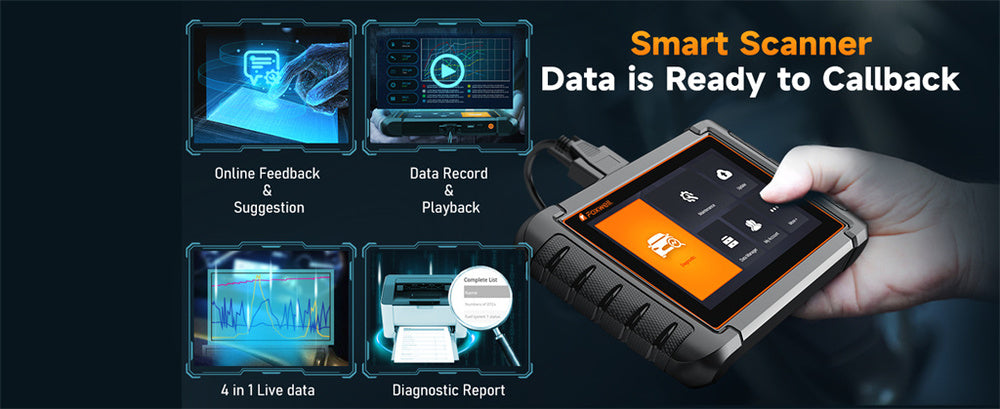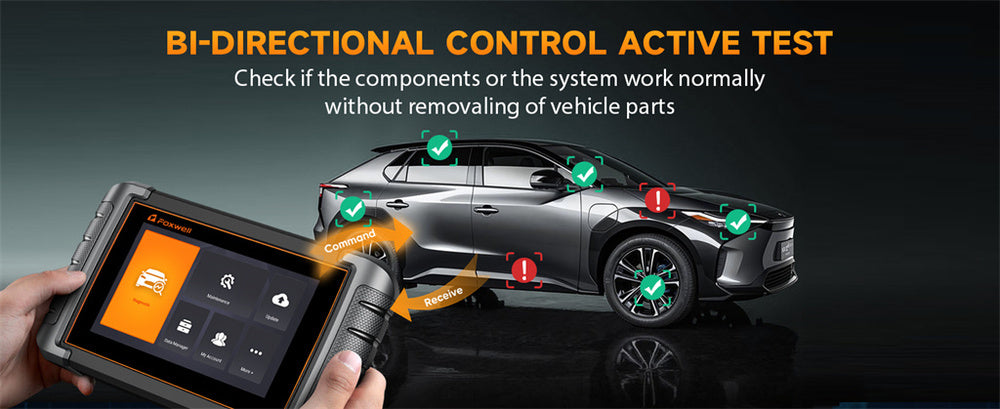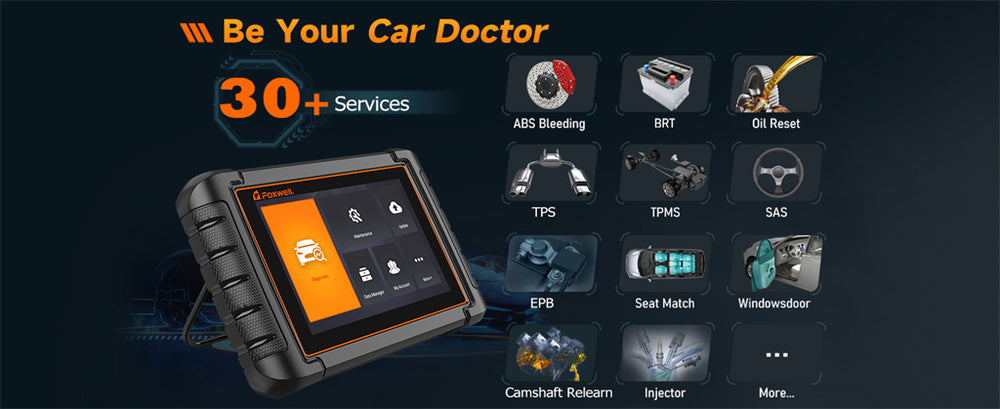When your vehicle's OBD2 scanner stops talking to the ECU, it can be frustrating. There may be multiple causes, one factor you may not immediately consider is the ignition switch.
We will explore this potential cause as well as other responsible and practical steps for diagnosing and fixing any potential communication problems with OBD2 systems.
What Role Does an Ignition Switch Play in OBD2 Communication?

Your vehicle's ignition switch plays an essential role in providing power to various electrical systems - including your ECU - which are necessary for OBD2 communication.
As soon as you turn the key (or press the start button on modern vehicles), power is sent from it directly to its ECU and other vital systems, including OBD2 scanners that access it. In order to communicate effectively, this must generally be in the "ON" or "RUN" position; otherwise, communication cannot take place.
A malfunctioning ignition switch could prevent an OBD2 scanner from connecting to the ECU, leading to no connection being made between the two.
Furthermore, intermittently providing power may mean inconsistent or no communication—in either instance, acting as a gateway for powering up systems required for OBD2 scanning.
Faulty Ignition Switch and OBD2 Scanner Communication A faulty ignition switch may compromise OBD2 scanner communication in several ways, as we will explore below:
No Power to ECU: If the ignition switch is malfunctioning, it could fail to provide power to the ECU, making it impossible for an OBD2 scanner to identify or communicate with it as it's effectively "off."
Without power, an ECU cannot offer diagnostic data to an OBD2 scanner and provide diagnostic information.
How Can a Faulty Ignition Switch Affect OBD2 Scanner Communication?
A faulty ignition switch can cause OBD2 communication issues in several ways. Let's look at some potential scenarios:
No Power to the ECU:If the ignition switch isn’t working properly, it may not send power to the ECU. This would result in the OBD2 scanner being unable to detect or communicate with the ECU because it’s essentially "off." Without power, the ECU can’t provide diagnostic data to the scanner.
Intermittent Communication:Sometimes, an ignition switch may be failing intermittently, meaning the power supply to the ECU might cut in and out. In this case, you may find that your OBD2 scanner connects at times, but the connection drops unexpectedly. This can lead to incomplete readings or failure to retrieve error codes, making diagnostics difficult.
Partial Electrical Failure:The ignition switch might only partially fail, where some systems get power, but others don’t. In this case, certain functions of the OBD2 system could work while others don’t. For example, you might get power to your dashboard but not to the ECU, causing the OBD2 scanner to malfunction.
Common Reasons for OBD2 Scanner Not Communicating
Faulty ignition switches may be one cause of OBD2 scanner communication issues; however, there may also be other potential culprits, such as:
Blown Fuse:A blown fuse in an OBD2 or ECU circuit may prevent your scanner from connecting with its target ECU. Check your vehicle's fuse box for any blown fuses related to OBD2 ports or ECU systems that could prevent communication.
Faulty OBD2 Port:Issues may lie within the port itself. A damaged or loose OBD2 port can create communication issues; to ensure the optimal functioning of this connection, it must be clean, free from debris, and tightly connected.
Wiring Issues: Over time, the wiring between an OBD2 port and an ECU may become damaged from wear and tear, heat, moisture, or corrosion. If this occurs, your scanner might no longer communicate with ECU properly.
Low Battery Voltage: An OBD2 scanner needs a certain minimum level of voltage to function effectively, and if your car's battery is weak or failing, it may not supply enough voltage to power the OBD2 system fully, leading to connection problems and failures.
Faulty ECU:Although rare, an ECU can become defective and prevent communication between it and an OBD2 scanner. When this occurs, other vehicle issues could emerge due to this incomprehensible lack of connection.
Practical Steps for Addressing OBD2 Scanner Communication Issues
Utilizing the Foxwell NT809BT OBD2 scanner can streamline the process of solving communication problems with OBD2. Here are some steps you can take:
Check Power and Connection:Before connecting the NT809BT wirelessly to an OBD2 port, ensure the ignition switch is in the "ON" position and that its scanning cable has been securely attached. Furthermore, verify its Bluetooth connection if desired.
Test the OBD2 Port:With the Foxwell NT809BT, you can easily test for power at any vehicle's OBD2 port. If no readings are recorded, check your fuses and wiring for faults to locate any issues.
Clear Faulty Codes: Once communication has been restored, use the NT809BT to read and clear any diagnostic trouble codes (DTCs), making sure any lingering issues don't affect future readings.
Battery Check: While using your Foxwell NT809BT to monitor its battery voltage levels and prevent communication problems from low-voltage issues, use its Battery Check feature to examine whether low-voltage levels are impacting communication issues and charge or replace as necessary.
Utilizing the Foxwell NT809BT's advanced diagnostic features, you can quickly identify and resolve OBD2 communication problems to ensure a more straightforward and faster diagnostic process.

Conclusion
Faulty ignition switches may prevent your OBD2 scanner from connecting with your vehicle's ECU, but to address this issue successfully, it's crucial that you approach it methodically.
By understanding its role, testing for power, and considering potential causes like fuses or wiring, you can effectively diagnose and resolve communication problems with OBD2. Foxwell's NT809BT scanner offers excellent assistance with its advanced features designed to pinpoint exact issues quickly.
FAQs
What would cause the OBD2 port not to work?
A blown fuse, faulty wiring, or a damaged OBD2 port could prevent it from working. Additionally, low battery voltage may also cause the OBD2 port to malfunction.
Why is my OBD2 not connecting to the ECU?
A faulty ignition switch, blown fuse, wiring issues, or a weak battery could prevent the OBD2 scanner from connecting to the ECU. Ensure the ignition is in the "ON" position, and check these components for faults.
Why is my OBD scanner not picking up codes?
The scanner may not pick up codes if there’s no power to the ECU, the codes were recently cleared, or there are connection issues with the scanner or the OBD2 port.




Leave a comment
This site is protected by hCaptcha and the hCaptcha Privacy Policy and Terms of Service apply.